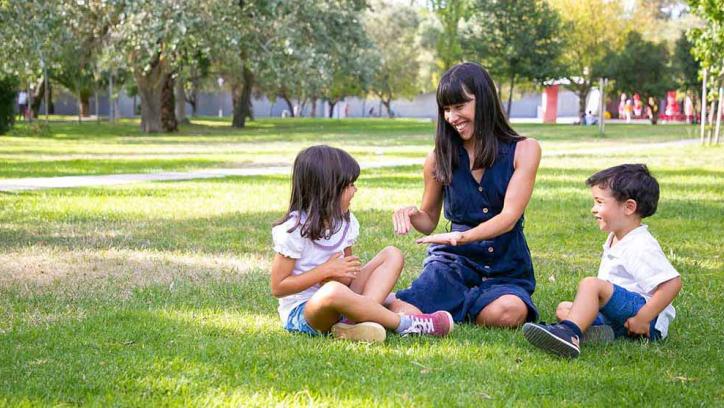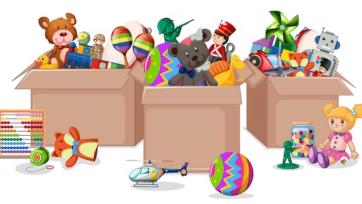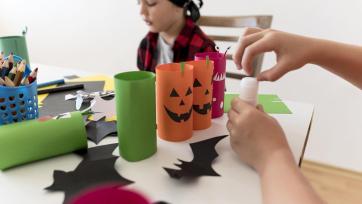When friends would come over, they sometimes brought their kids with them. It won't be long before the kids begin speaking to each other and playing together. Imagine that your kid takes your friend's kid to his room and gives him all his toys. Sharing is an important part of life, and their child needs to learn how to do it to be kind, appreciative, and have self-respect.
Sharing doesn't just teach your children how to be kind; it's also a good lesson for everyone. It's a new experience for your child, and the more experiences he has, the stronger his values will be. We have you covered if you've ever wondered how and where to teach preschoolers about sharing.

Why is it important for kids to learn how to share?
Sharing is a very important skill to have. When your kids learn to share, he starts to understand what it means to take turns and give other people a chance. Sharing helps them get better at working as a team, cooperating with others, and relying on others, among other things.
Is it Typical for a Youngster to Find Sharing Difficult?
Yes. At three, kids start to understand how other people feel. But they can't stop what happens when they act on their impulses. Before age 5, children don't have full control over their impulses, so you may notice that your child doesn't want to share even when he does. Don't worry, it's normal, and you should give your child a little time. After all, these are physical changes inside him that he can't control.
Effective Methods to Teach Children the Value of Sharing
Taking Turns:
Do your children like to play with the train? Tell them to take turns with their toys or to share them. If they don't share, take away their toys so they can learn how important it is to share. So, the next time, they won't think twice about sharing and working together rather than being selfish.
Appreciate:
Did you see your child do a good thing by giving a friend or sibling a cookie? Tell him you like him and do something nice for him. He'll want that answer from you again and will tell you next time.
Time It:
Maybe it's hard for your child to learn to share. During play dates, setting a timer is a great way to get things going. If your child is having fun with LEGOs, for example, he only has 10 minutes to construct whatever he wants before it's his brother's turn. If he wants to try again, he'll have to be patient and wait until it's his turn or play with something else.
Tell Them It's Just Temporary:
If your child has a temper tantrum because they don't want to share, tell them it won't last forever. Children don't like giving up their most valuable things; who could blame them? But they'll be happy to share if they know they'll get it back in a few minutes or hours.
Make a connection with your child:
When kids are close to their parents, they feel better about themselves and are more willing to share what they have. Because they get sufficient love and affection from their family and friends, they don't feel the need to get it from inanimate toys.
Describe the advantages of sharing:
Sit down with your child and tell them why sharing is important. Your child won't get anything if he doesn't share it with others. Once he understands this simple idea, he'll be glad to share.
Keep Away His Favorite Toys:
If your kid doesn't want to share his toys, ask which ones he'd be willing to give up. You can put the ones he doesn't want to play with on a shelf or somewhere else until their play date. You can return it to them when their friends leave. This will help them get used to sharing less valuable things, which will eventually help them get used to sharing extra valuable things.
Show them real-world sharing:
Extend the idea of sharing by giving real-life love, affection, and other things. Sharing isn't just about giving away food and toys. Teach them to enjoy special times with their siblings, like visiting the park or the theater as a family. Teach them to hug one‘s siblings and talk to other people about how they feel.
Use Different Words:
If your child is hesitant to share, try using words like lending, borrowing, or getting it back within a few hours (or some time). When they know they'll get back what they share, they'll feel safer and be more likely to share. When you explain the idea of sharing, use words that are easy to understand.
Be a Good Example:
Your child learns more from what you do than what you say, so it's important to show them how to share. Share a slice of pizza or a sandwich with your partner, and every time you sit down for a snack, ask your child if he wants some. By showing him how to share and by telling him about your own experiences, he'll want to join in the fun.
Teach them about charity:
If your child has toys he or she no longer wants to play with, give them to a charitable organization with your child's help. Also, shopping for brand-new toys to give to charity is a surefire way to teach your kids to be kind and caring. Take them on journeys to orphanages and other places that help people in need, and encourage them to donate aside some of their valuables. This will help them understand that sharing improves the world and that their contributions matter.
Practice, Practice:
Sharing is a skill, just like everything else in life, and it is true that it takes practice to get better at it. Please encourage your child to talk to other kids his age and make friends. By making his friends trust him, he'll be more open to sharing and willing to show a few of their things.







